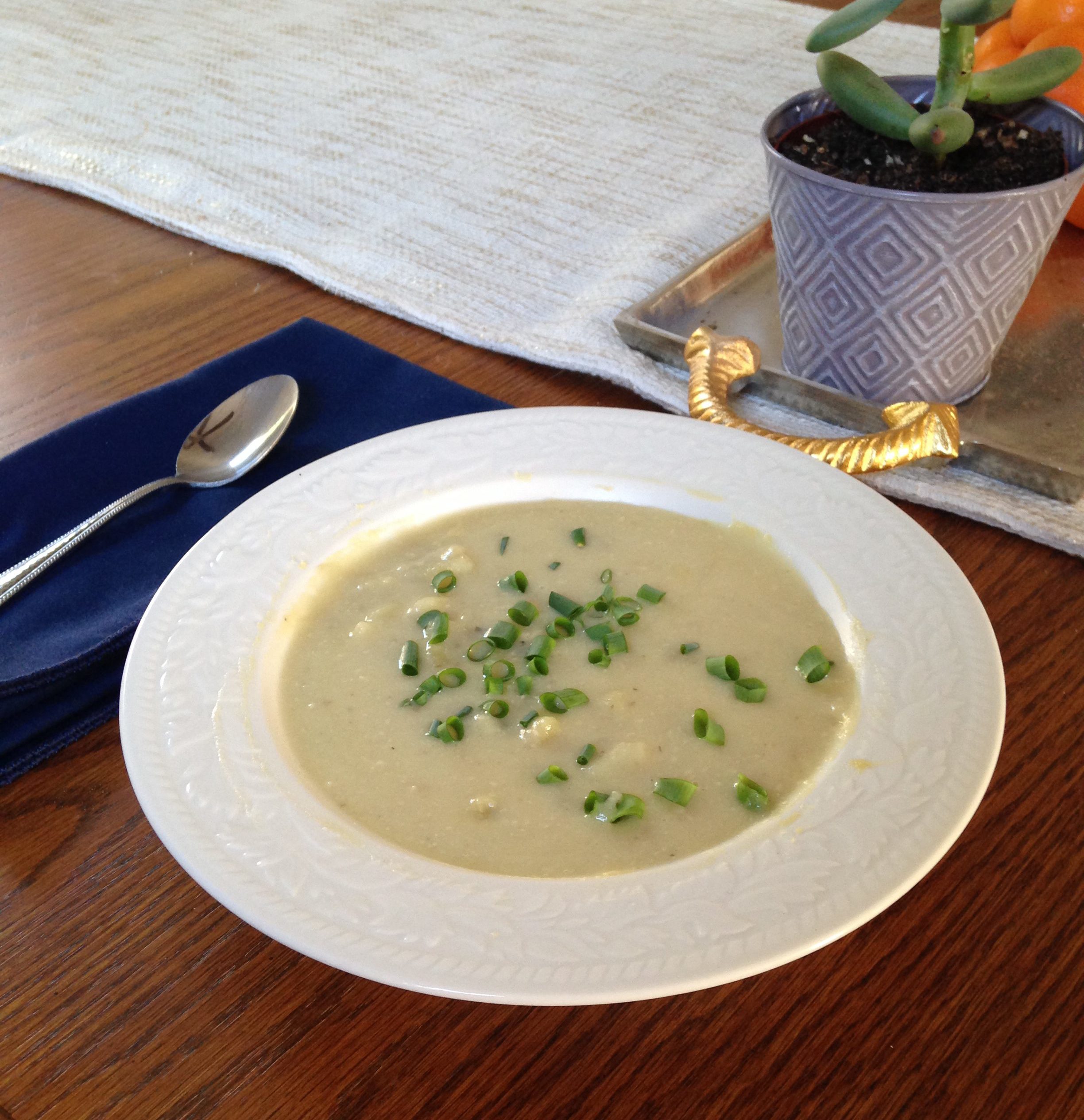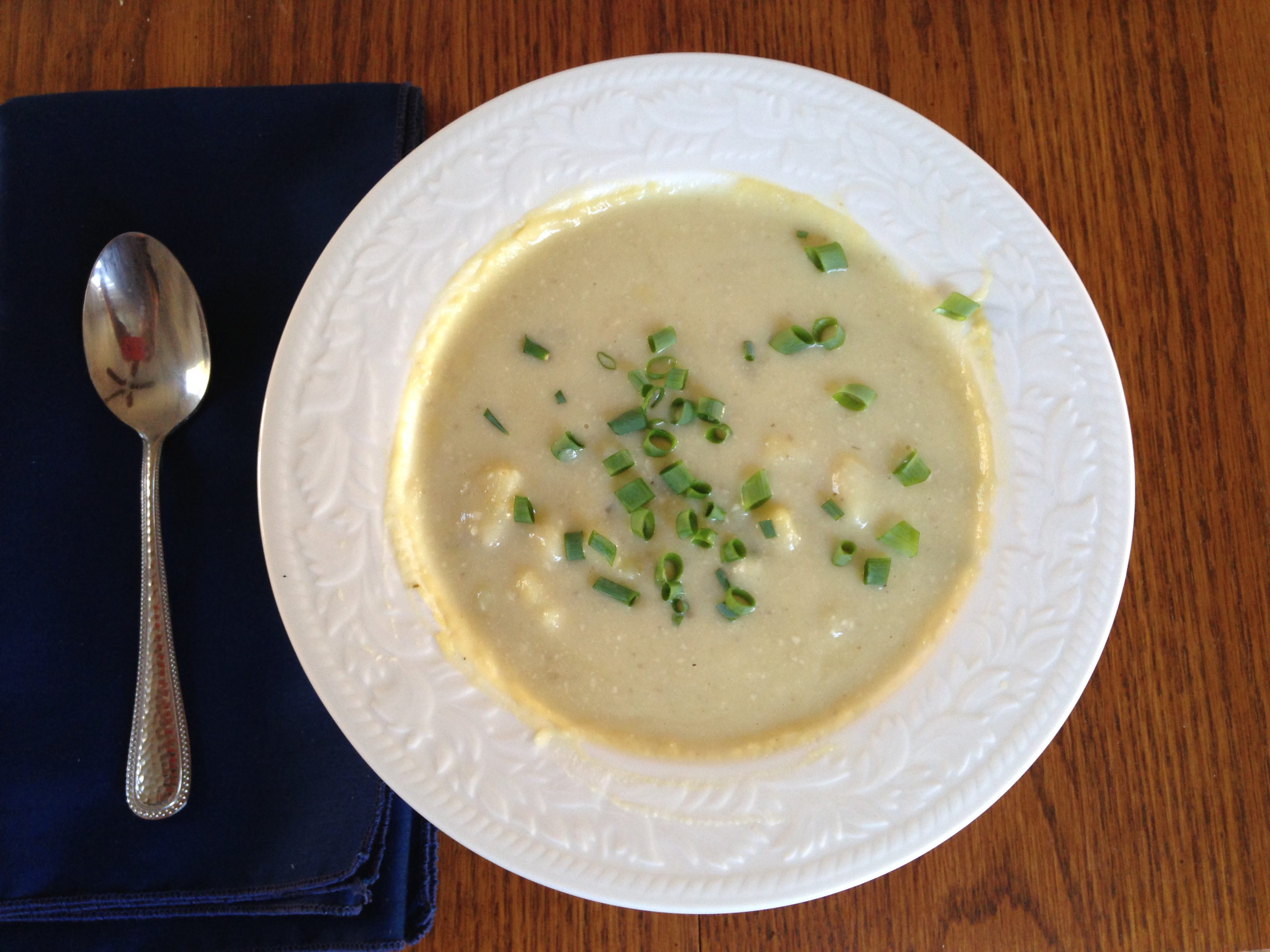Lots of veggies are a good idea — most of the time. For folks with Inflammatory Bowel Disease (including Ulcerative Colitis and Crohn’s Disease) and during certain kinds of flare-ups of other digestive disorders, there are times when lots of fiber actually serves to exacerbate these conditions. Under normal circumstances, we think of insoluble fiber like a “broom” that adds bulk to the stool and helps to “sweep” the colon walls and facilitate the complete elimination of waste. When the colon walls are friable and inflamed, the lightest touch of fiber can create more bleeding and irritation, and even perpetuate the inflammatory cycle.
That’s why I screwed myself over so royally by eating a raw vegan diet when I was in the early stages of a UC flare-up. It had nothing to do with veganism being inherently deficient, or veganism being somehow harmful for my health. All of that fiber I was eating served to physically irritate my already-inflamed colon. And that irritation led to more inflammation. It became a vicious cycle.
This is a perfect example of the truth of the statement: there are no good foods and bad foods. The rightness or wrongness of a meal has so much to do with the eater. A good meal meets your needs. A bad meal either fails to meet your needs, or actively causes harm.
(But here’s the thing — it’s possible to take this idea of context way too far. We’re all human beings. Barring serious illness and allergy, our dietary needs aren’t so highly individualized. As omnivores, it’s possible for humans to be healthy on a wide variety of diets. That doesn’t mean that we need to search high and low for the right way to eat for each of our bodies. When we’re healthy, our bodies are resilient and adaptable. We have the luxury of choice.)
In Praise of Potatoes
Here’s where the humble potato has so much to offer. Potatoes are a low residue food. That means that they’re low in fiber and the body digests them so thoroughly that there’s not much “residue” left over to pass into the colon. (Residue is everything left over after digestion that makes up the bulk of the stool.) The very thing that’s been hurled at potatoes as a criticism turns out to be an advantage when it comes to IBD. Carbs, Vitamin B6, potassium, — even some protein — without too much irritating fiber? Yes, please!
This comforting potato soup is very easy to make and you can modify it to suit your needs. If you have FODMAP sensitivities, omit the onions and garlic. (Substitute garlic-infused oil and use veggie broth instead of water to boost the flavor of the soup.)

Here’s what you’ll need:
Oil for the pot (any moderately high-heat oil will work: grapeseed, canola, olive…)
1 or 2 onions
4-8 cloves of garlic, according to your taste
3 lbs potatoes (I used Yukon Gold, but you can use Russets or a mix of the two!)
1/2 cup of raw cashews, soaked
Bay leaves (3+, I used a lot because mine are a bit old and have lost some of their oomph)
Two sprigs of fresh rosemary (optional)
Six pieces (tongue depressor size) of Astragalus root (optional)
Handful of nutritional yeast (about 1/4 cup)
Chives or scallions for garnishing the bowls
Salt
Directions:
- Add oil to the bottom of a soup pot. Chop onions and cook over moderate heat until soft, about 4-5 minutes.
2. Add garlic and cook until fragrant, about 1-2 minutes.
3. Add chopped potatoes, bay leaves, and rosemary. Cover completely with water (or vegetable stock, if you prefer.)
4. Cover and bring to a boil. Reduce heat to a simmer and partially uncover the pot to let steam escape. Cook until potatoes are soft, about 20 minutes.
5. Remove a small amount of liquid from the pot and allow to cool slightly. Combine with cashews in a blender and blend until completely smooth and creamy. Add cashew cream to the pot.
6. If you prefer a creamy soup, puree the rest of the soup. You can use an immersion blender or remove the soup in batches and blend in a regular blender. (If you use a regular blender, let the soup cool slightly and be careful not to overfill it! Hot soup can cause a major mess if you overfill the blender!) Note: Yukon Gold potatoes become “gummy” if you overpuree them. Err on the side of “less is more” when it comes to blending this soup!
7. Add nutritional yeast and salt to taste.
8. Serve garnished with chives, vegan bacon bits, more nutritional yeast, or even some melted vegan cheddar. Enjoy!

